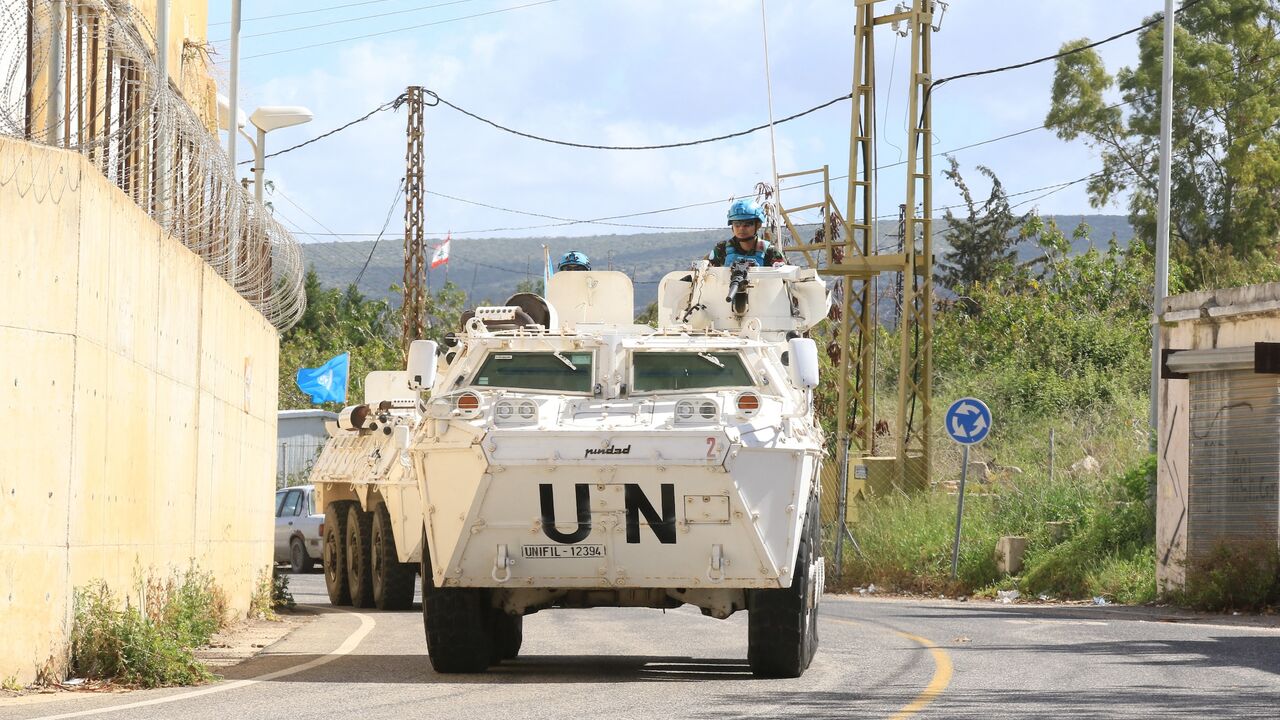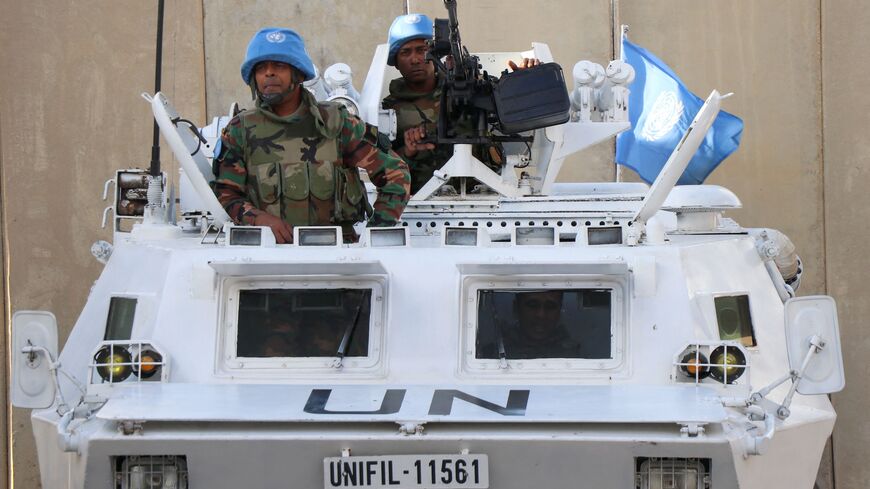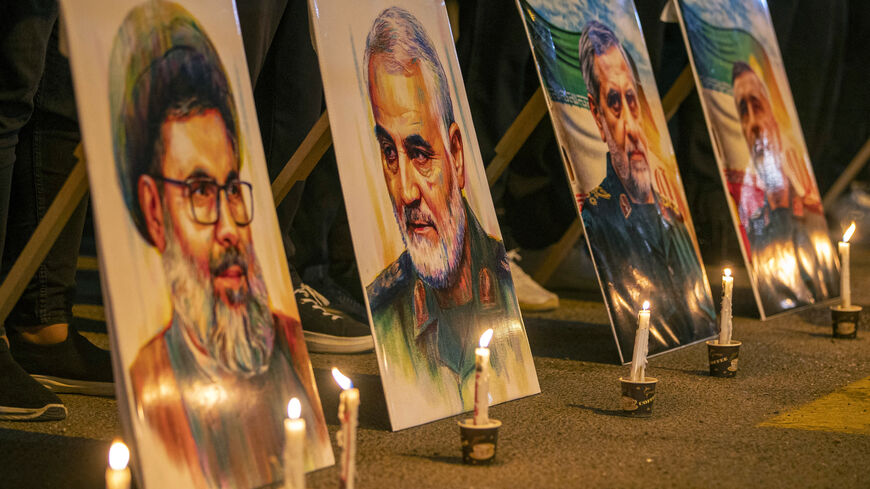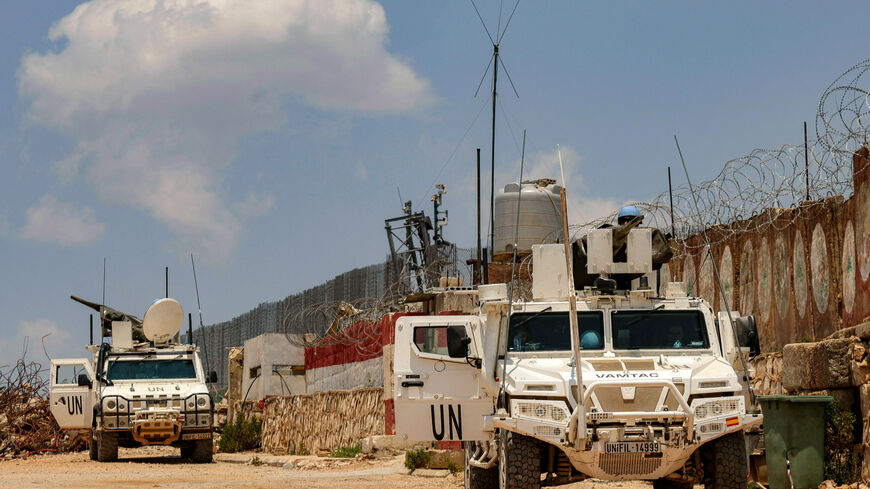UNIFIL patrol in southern Lebanon comes under attack: What to know
A group of men blocked a UNIFIL patrol in southern Lebanon, citing the absence of a Lebanese army escort, leading to brief clashes in the latest incident involving local residents and the UN peacekeeping mission.

BEIRUT — Clashes erupted in Lebanon on Thursday between members of the United Nations Interim Force in Lebanon (UNIFIL) and residents of a southern town, marking the latest in a series of similar confrontations that have escalated in recent months.
What happened: According to the state-run National News Agency, a UN peacekeeping patrol was passing through the town of Aaitit when a group of residents intercepted it, demanding that the peacekeepers leave and return only with a Lebanese Army escort. The convoy was heading to the nearby area of Wadi Jilu for a planned patrol, according to a UNIFIL statement.
Tensions escalated following a heated exchange between the two parties, and peacekeepers were seen throwing tear gas canisters at the crowds in a bid to disperse them, according to local media and videos circulating online. The patrol then retreated.
🟥 [#Video] A #UNIFIL patrol entered the Sour district village of Aitit without a Lebanese Army escort this morning, prompting residents of the town to intercept the troops and request that they turn back and wait for the army to accompany it before re-entering the village.
— L'Orient Today (@lorienttoday) July 10, 2025
When… pic.twitter.com/48xNF8ROoO
UNIFIL patrols in southern Lebanon are increasingly coming under attack from local residents, who insist that these patrols be accompanied by Lebanese soldiers in line with UN Resolution 1701, which ended the 2006 Israel-Lebanon war.
UNIFIL, however, insists that it can operate in southern Lebanon without an army escort under the resolution.
“As the Lebanese government and army have made clear, peacekeepers can move independently in south Lebanon in performance of their duties to restore security and stability under Resolution 1701. They do not need to be accompanied by Lebanese soldiers,” UNIFIL spokesperson Andrea Tenenti said in a statement carried by the NNA.
According to its website, “UNIFIL coordinates its activities, including foot and vehicle patrols, with the Lebanese Armed Forces. As of September 2024, about one-fifth of activities that the Lebanese Armed Forces can participate in are done in close coordination with them, while the rest are done independently.”
Tenenti condemned the attack as a serious violation of international law and Resolution 1701, saying, “We have requested that the Lebanese authorities bring the perpetrators to justice.”
He stressed that the patrol that came under attack was previously coordinated with the Lebanese army.
According to Tenenti, several people in civilian clothes blocked the UNIFIL patrol near Wadi Jilu and began throwing rocks at the peacekeepers, prompting them to fire tear gas to “protect themselves from harm.” He added that the Lebanese army intervened and contained the situation.
The army has yet to comment on the incident.
Background: Tensions occasionally arise between UNIFIL and residents of southern Lebanon, a Hezbollah stronghold. Similar incidents have increasingly occurred throughout and after the 13-month war between Israel and Hezbollah that ended with a US-brokered ceasefire in November 2024.
Earlier in June, local residents in the town of Srifa confronted a UNIFIL patrol over the absence of a Lebanese military escort. Videos at the time showed a man climbing onto a UN vehicle and raising a Hezbollah flag.
In February, UNIFIL’s outgoing deputy commander was injured near Beirut International Airport when a group of people who had been protesting the Lebanese authorities’ decision to bar two Iranian planes from landing attacked a peacekeeping convoy.
According to a UNIFIL statement, a convoy that was taking peacekeepers to the airport was “violently attacked” and a vehicle was set on fire.
At the time, Hezbollah supporters staged protests around the Beirut airport and blocked the road leading to the facility after the Lebanese Civil Aviation Authority informed an incoming Mahan Air flight from Tehran that it could not land. This followed allegations that Iran’s Quds Force — a branch of the Islamic Revolutionary Guard Corps — uses the airline to smuggle funds to Hezbollah.
Under the deal, Israeli troops must also withdraw from five border villages it occupied during the war — which has yet to happen.
As the Lebanese military continues to dismantle Hezbollah military sites and weapons south of the Litani River in line with the ceasefire, Washington has upped its pressure on Lebanon’s authorities to completely disarm the group.
Following his meeting with Lebanese President Joseph Aoun on Monday, Barrack said he received the government’s response to the US road map — which he had presented to Lebanese officials during a previous visit to Beirut on June 19.
“I am unbelievably satisfied with the response,” he told reporters. However, he stressed that the issue of Hezbollah’s disarmament must be resolved by the Lebanese themselves.
“You want to change, you change it, and we’ll be there to support you,” he added.
Political sources cited by the Saudi-owned Asharq al-Awsat newspaper said Barrack — who is temporarily leading US diplomatic efforts between Lebanon and Israel — would visit Israel soon before returning to Beirut in two weeks.
The 15-point political and security road map reportedly calls for the removal of Hezbollah’s weapons within four months in exchange for the Israeli military's withdrawal from five villages it occupied during its recent war with Hezbollah.






